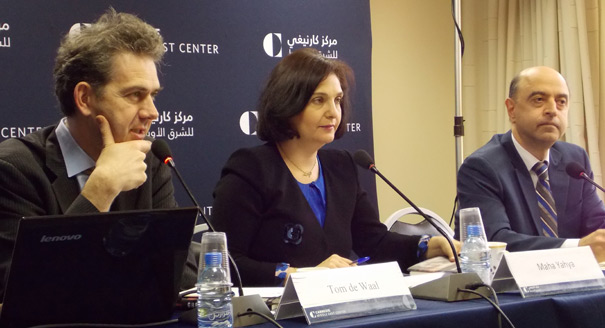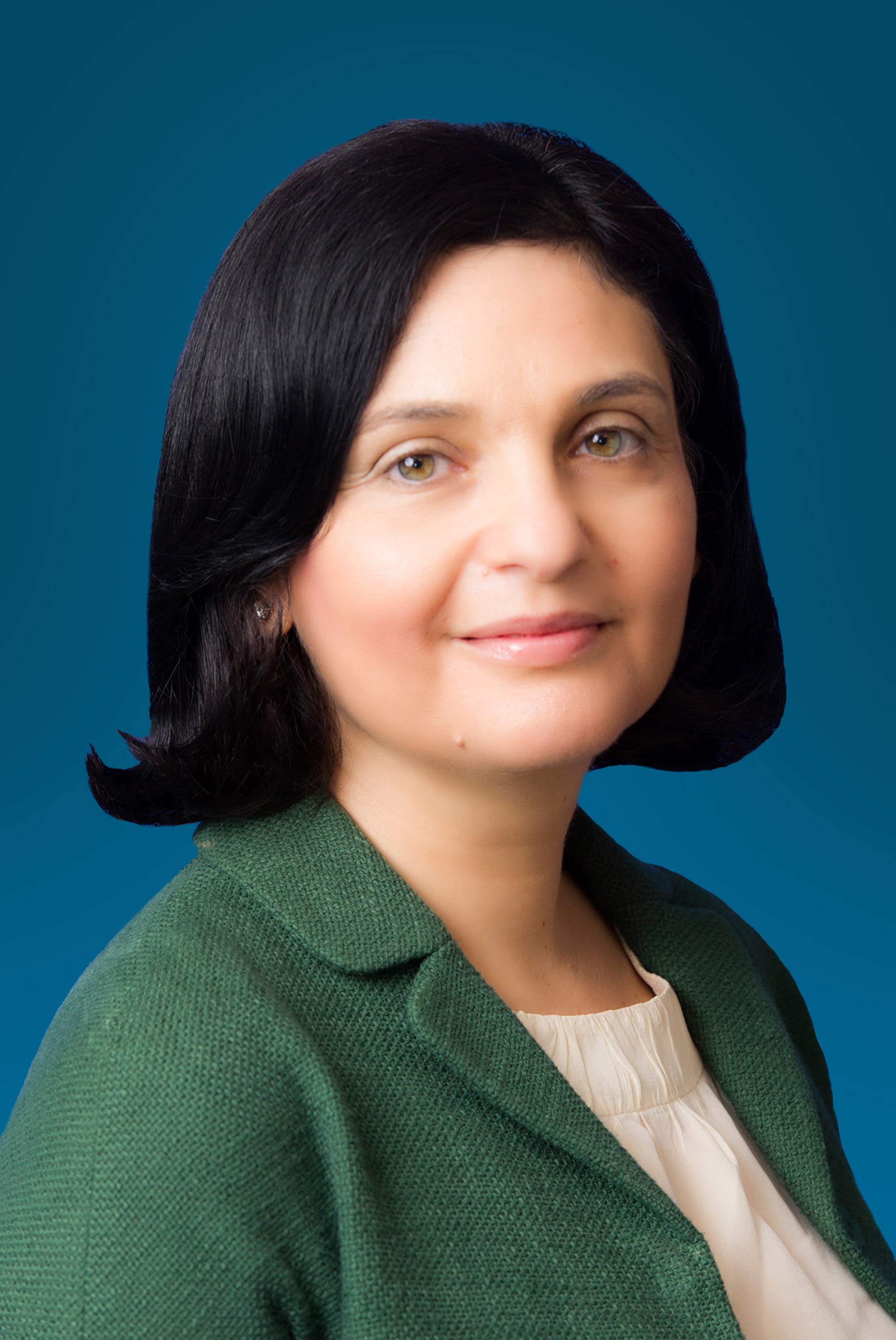{
"authors": [
"Thomas de Waal",
"Paul Haidostian",
"Maha Yahya"
],
"type": "event",
"centerAffiliationAll": "",
"centers": [
"Carnegie Endowment for International Peace",
"Malcolm H. Kerr Carnegie Middle East Center"
],
"collections": [],
"englishNewsletterAll": "",
"nonEnglishNewsletterAll": "",
"primaryCenter": "Malcolm H. Kerr Carnegie Middle East Center",
"programAffiliation": "",
"programs": [],
"projects": [],
"regions": [
"Middle East",
"Türkiye",
"Caucasus",
"Armenia"
],
"topics": [
"Security"
]
}
The Armenian World, 100 Years After the Genocide
Tue, March 10th, 2015
Beirut
2015 marks one hundred years since the systematic killing of the Armenian population in the Ottoman Empire. A century later, the Armenian Genocide remains a contentious issue between Armenia and Turkey.
The Carnegie Middle East Center, in partnership with Haigazian University, hosted Carnegie’s Thomas de Waal and Reverend Dr. Paul Haidostian, president of Haigazian University. They discussed how the Armenian Genocide has shaped contemporary politics and worldviews both within the region and beyond. De Waal also shared findings from his recent book Great Catastrophe: Armenians And Turks In The Shadow Of Genocide (Oxford University Press, 2015), which addresses the rollercoaster of Armenian-Turkish relations since the Genocide. Carnegie’s Maha Yahya moderated.
Defining Genocide
- An Important Word: The term “genocide” is problematic, because it has caused a barrier that hinders the possibility of understanding the political and historical aspect behind what really happened before the Armenian genocide, said de Waal. However, Haidostian argued the term genocide is important because now that a word exists for the event it must be labeled as such if it is ever to be rectified.
- Event Predates Terminology: It is important to note that the term “genocide” was not in existence at the time of the Armenian genocide; the event was known as The Great Catastrophe in the Armenian community at the time, noted de Waal.
- Different Uses: The term “Red Genocide” was used during the early 1900s to express the violence of the event, Haidostian said. However, since 1965 the term “White Genocide” has also been used to describe the Armenian diaspora’s experience of cultural erasure.
A Changing Turkey and Armenia
- Opportunities: Turkey and Armenia have opened up opportunities for possible dialogue, both on a social and political level, and attempts to normalization between the two parties have taken place on several occasions, said de Waal.
- Talks: Secret talks in Switzerland, from 2007 to 2009, were considered another attempt at normalization, but the opportunity was not properly grasped, de Waal added. The resulting document was signed yet not ratified.
- Churches: De Waal said that reconstruction of Armenian churches introduces a sign of hopefulness in Kurdish parts of Turkey.
Armenian Diaspora
- East versus West: Since the collapse of the Soviet Union, the Armenians of the east have had a different agenda compared to those in the west, de Waal said. For eastern Armenians, the genocide is not considered a precondition for improving relations with Turkey, due to political pragmatism. In contrast, the Armenian diaspora community in the west has made recognition of the genocide its primary focus; this is due in part to their separation from the practical issues facing eastern Armenians, de Waal added.
- Third Parties: There has been a confusion among third party supporters who want to side with the Armenians but don't always know what to say in terms of supporting arguments, and this can be problematic, said Haidostian.
- Identity: Every Armenian goes through a conflict of identity, Haidostian said. For the diaspora, this manifests in pursuing justice and a deep concern for the betterment of the Armenian population.
THOMAS DE WAAL
Thomas De Waal is a senior associate at the Carnegie Endowment, specializing primarily in the South Caucasus region comprising Armenia, Azerbaijan, and Georgia and their breakaway territories as well as the wider Black Sea region.
PAUL HAIDOSTIAN
Paul Haidostian is the President of Haigazian University in Beirut, Lebanon since 2002. An ordained minister of the Union of American Evangelical Churches in the Near East, Dr. Haidostian has served on the faculty of the Near East School of Theology (NEST) in Beirut, teaching Pastoral Theology.
MAHA YAHYA
Maha Yahya is a senior associate at the Carnegie Middle East Center, where her research focuses on citizenship, pluralism, and social justice in the aftermath of the Arab uprisings.
Carnegie does not take institutional positions on public policy issues; the views represented herein are those of the author(s) and do not necessarily reflect the views of Carnegie, its staff, or its trustees.
Event Speakers
De Waal is a senior fellow at Carnegie Europe, specializing in Eastern Europe and the Caucasus.
Paul Haidostian

